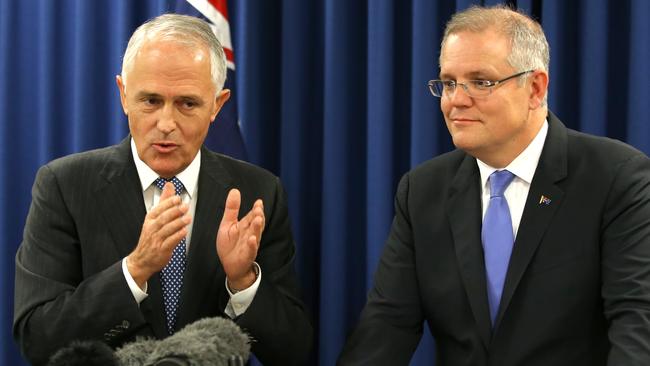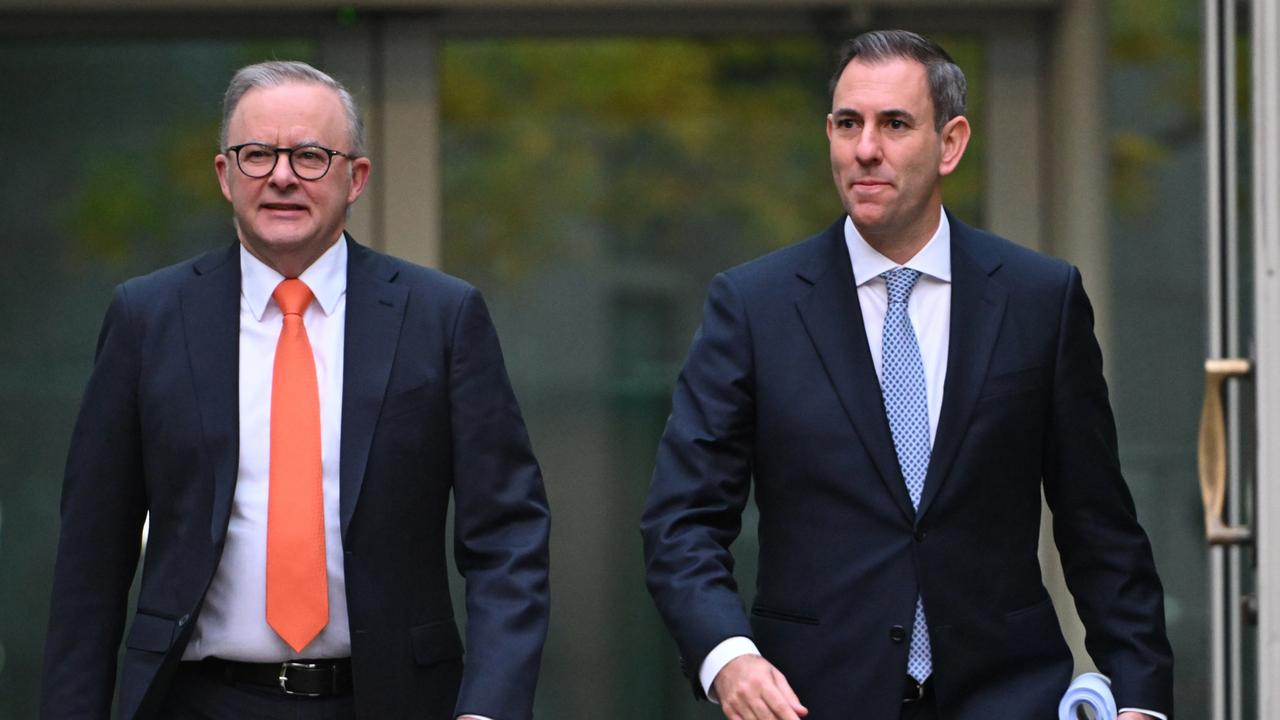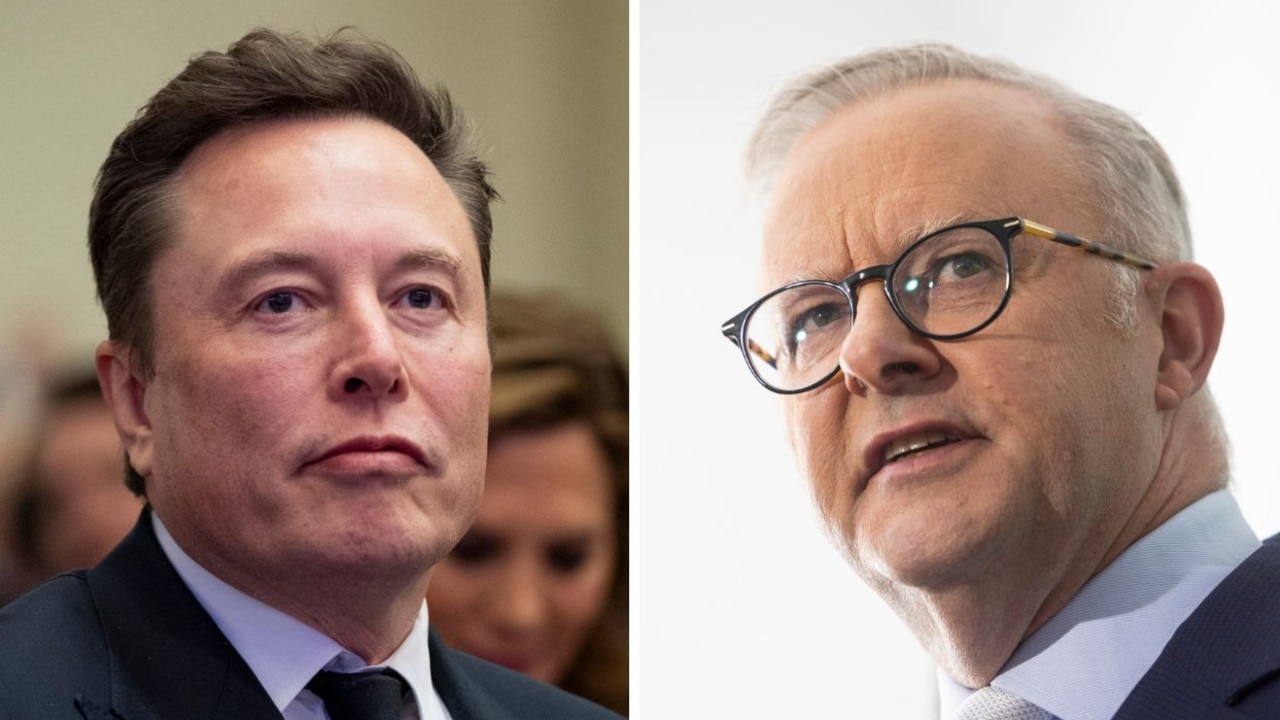Superannuation debate shows the problem with election campaigns is nobody can be frank
IF truth is the first casualty of war, frankness is the first casualty of election campaigns, writes Shaun Carney.

Analysis
Don't miss out on the headlines from Analysis. Followed categories will be added to My News.
IF truth is the first casualty of war, frankness is the first casualty of election campaigns. There are many things our political leaders and their frontbench colleagues could — and probably should — tell us about their policies, but politics gets in the way.
Prime Minister Malcolm Turnbull and Treasurer Scott Morrison dug in yesterday on the government’s superannuation changes. Despite calls from voters and some Liberal Party donors to MPs for a rethink on the measures in last month’s Budget, they insist they’re not for turning.
For quite a few Liberal MPs this is white-knuckle time. They’re getting complaints from voters in the over-50 age group, one of the biggest parts of the party base, about the changes. The measures are aimed mostly at high-wealth individuals, people with millions in their super accounts.
And in order to cut back on the light — or, in some cases non-existent — tax treatment applied to superannuation contributions, the government has cast the net wide. One of the measures introduced a degree of retrospectivity, setting a lifetime cap of $500,000 for after-tax contributions made since 2007. And a $25,000 annual cap on future before-tax contributions will be applied, which limits the ability of some to use super as a mechanism to reduce income tax.
A fact of life is that superannuation is one of those things that just about everybody pays almost no mind to until they reach their late 40s at the earliest.
And then once they’ve thought about it they start to obsess about it because they realise their retirement is looming whether they like it or not. This realisation was one of the reasons Peter Costello, in his final years as treasurer in the Howard government, applied very light taxing rates to super. The aim was to help workers in their final years in the workforce to build up their super balances.
Some wealthy Australians saw this as a lurk. As Assistant Treasurer Kelly O’Dwyer said this week, these people were using the concessions as a tax minimisation tool. How could they not? Every financial adviser in the country in the past 10 years was advising clients turning 55 (the starting age has recently risen to 56) to draw an untaxed transition-to-retirement pension from super and to then plough it straight back in, thus reducing overall tax exposure.
Now the government intends to impose a 15 per cent tax on transition-to-retirement pensions, so that someone on a low income and a pension of $40,000 a year would have to pay $6000 in tax that they didn’t have to pay before. That was the issue that got Julie Bishop into trouble on radio on Wednesday; she wasn’t familiar with the policy. According to Kelly O’Dwyer, this change will affect only 115,000 Australians, 80,000 of whom have self-managed funds. These numbers, from Treasury modelling, seem unbelievably small. Actuarial firm Rice Warner believes the number of affected accounts will be closer to 580,000.
The nation’s population is about 24 million. In the industry super sector alone there are five million members. Is it credible that only 35,000 people belonging to industry and general retail funds are going to be affected?
The problem for the government is that the super changes were unveiled in the Budget, which was the precursor to the election campaign. They weren’t tested in the electorate or in the party room. They weren’t subject to consultation. They were just dumped out there.
Almost certainly, some people on lower incomes are going to be hit and there’s a need to refine the policy. But the government can’t admit that, of course; it has to push ahead. In a rational, non-election environment, the government would not be doubling down and making out everything was fine, it would be getting things right and explaining its intentions.
The aversion to being frank affects all sides of politics. On the Labor side, the defence of penalty rates should be an unquestionable strength but it’s not working out that way. The Fair Work Commission is now reviewing retail and hospitality penalty rates. It will deliver its findings in August or September. So when Labor leader Bill Shorten is asked, “what will you do if the Commission recommends the removal or reduction of penalty rates?”, he has to say he’ll wait for the Commission’s finding, which sounds feeble. What he knows is that it’s extremely unlikely that the Commission would cut or wipe out weekend penalties. Fair Work is a creation of a Labor government, for one thing. And should Labor be elected on July 2, it’s also extremely unlikely that it would want to make a new government unhappy and embarrassed.
It will almost certainly come up with a new formula, with a range of strong safeguards for employees. That is how industrial tribunals established by Labor governments generally behave.
But Shorten can’t say that, any more than the government can admit that some of its super reforms might benefit from a bit of tinkering.
Shaun Carney is a Herald Sun columnist
Originally published as Superannuation debate shows the problem with election campaigns is nobody can be frank


